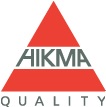 |
| Courtesy of Hikma |
Jordan-based Hikma has powered its growth by swooping in with drugs on the FDA's shortage list. For the past year, that drug has been doxycycline. Sales of the drug have allowed the company to raise earnings projections for 2013 for a fourth time. But the drugmaker says the party may be over, with competition catching up.
Today, Hikma upped its earnings forecast for the year to 23% ahead of reporting earnings next month. Sales of the crucial antibiotic pushed Hikma's generics sales up 137% in the first half of the year, and its pretax profit nearly doubled to $111.6 million. It said today that doxycycline sales would help push its generics revenues to about $270 million for 2013. That is $10 million more than it projected in November.
The drug, used for treating a host of conditions--malaria, sexually transmitted diseases and Lyme disease--was in short supply for months. But in October, the FDA finally moved it to "resolved" shortage status. Hikma told investors today that it actually expects its generics sales to fall in 2014 as competition builds for the golden-egg product.
Jefferies analyst James Vane-Tempest keyed in on that changing landscape in a note to investors, Reuters reports: "A key issue is how long the doxycycline opportunity will last and how Hikma intends to guide the market in 2014, but we expect strong underlying growth."
The drugmaker has some other strengths to fall back on, like its sterile injectable drug business, which it said will report growth of about 14% for the year and margins that exceed 30%. It expects the margins in that business remain at that level through this year. And like its Big Pharma competitors, it is moving into emerging markets. The Middle East company is extending its foothold in North Africa. Last year it said it would participate in a joint venture with MIDROC Pharmaceuticals, part of Sheikh Mohammed Hussein Al Amoudi's MIDROC Group, to build a manufacturing plant in Ethiopia.
- here's the release (PDF)
- more from Reuters